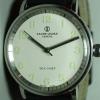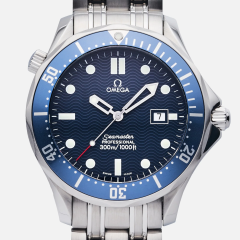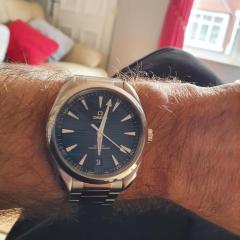-
Recently Browsing
- No registered users viewing this page.
-
Topics
-
Posts
-
By Neverenoughwatches · Posted
Lots of rust on that hairspring Nev, would you even try to clean it up ? -
How do you find the working distance from microscope lens to movement? Is it comfortable enough to get tools in?
-
By nickelsilver · Posted
Once you have the collet closer bits off, and the pulley off, there are two nuts on the spindle. These must be removed. There is a large nut in the back of the headstock with two holes, remove this with an appropriate wrench. The front large nut comes off too. The spindle now comes out- but wait- there's more! There is a spacer between the outer races of the bearings; the spindle will almost certainly come out "assembled" with both bearings and this spacer (it can actually come out front or back-ways with the large nuts off the headstock). You have to manage to press out the spindle from the rear bearing, get the spacer off, then remove the front bearing, now you can get to the key. Imagining you get it all apart without causing any damage to the bearings, now the fun part starts. You must apply preload to the bearings, and this is a very tricky endeavor. Basically once you have the bearings back on, and are in the casting, you snug up the rear nut (one of the two) on the spindle, checking the play of the spindle with at least a 0.002mm reading indicator, until there is zero axial play, then just a little more, then snug up the second nut to lock things in place. Of course snugging up the second nut influences the preload, so you can go back and forth a few times to get it right. Too much preload and bearing life diminishes, too little, and you get poor performance, poor surface finishes, ball skidding, etc. When I replaced the bearings in one of mine many years ago, I was surprised to find that the bearings were regular deep-groove bearings, but of a higher precision class than normal. I replaced with dimensionally identical angular contact bearings, class P4. In trying to set the preload, I just about lost my mind, so called Barden (the high precision arm of FAG bearing makers, and who made my new ones) and a nice engineer told me that the folks at Leinen were either crazy, or really good- he also said it's 100% A-OK to set up deep groove bearings with preload like this, but best is angular contact. In this bearing setup, the standard way to do it is to have a spacer between the outer races, and another between the inner races. Leinen has the former but not the latter, haha. His advice was to make an inner spacer. The trick is it has to be the exact same length as the outer spacer, within like a micron. Then you just tighten everything up and the preload is set, because the bearings (the new ones) are ground in a way that they have proper preload in that situation. Easy. Sort of- if you have the means to make the other spacer! Just to note- Schaublin does the preloading as Leinen did on these on their lathes using angular contact bearings. There is a procedure in the manual, where you tighten the nut until axial play is zero, then a certain number of degrees more. This works on their setup as the nut itself locks without a second nut, and they spent the time to figure it all out in a repeatable way. I say all this not to scare you off from dismantling your headstock, just to give a heads-up what you're up against to get it back to where it was before. -
Do, write a nice letter to Santa. I do all disassembly and assembly under the microscope. I consider it a necessity.









Recommended Posts
Join the conversation
You can post now and register later. If you have an account, sign in now to post with your account.
Note: Your post will require moderator approval before it will be visible.